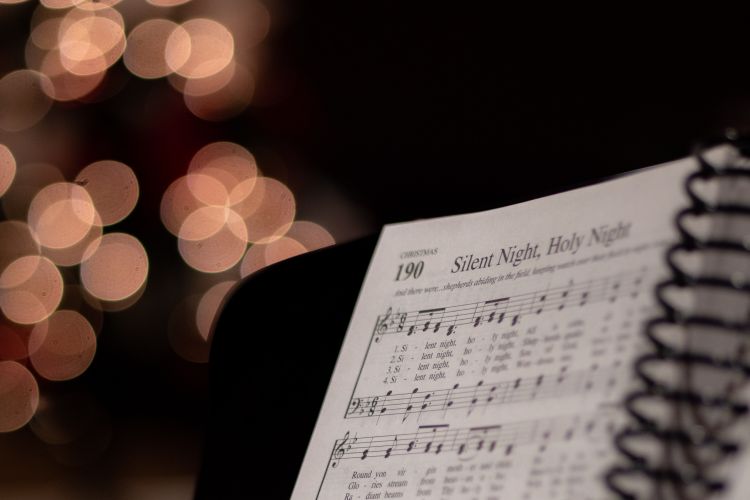Secular Christmas scenes are full of snow, wreaths, lights, and cookies. The roaring fires and flannel pajamas that appear on so many cards paint the holiday as one of coziness and warmth.
While there’s nothing wrong with these seasonal elements, none of them capture the biblical reality. Christmas is the time to rejoice in the Incarnation, the birth of Jesus.
But even in the Bible, Jesus’s birth was not an occasion for universal joy. While there was great celebration, the Christmas narratives are also serious, dark, and cautionary.
Herod the King
The second chapter of Matthew’s Gospel offers a stark contrast. Right from the beginning, we read that in the days of Herod the king the wise men came looking for the king of the Jews. This contrast seems intentional, as Matthew refers to Herod as “king” a total of three times (Matt 2:1, 3, 9).
While the wise men traveled a great distance to worship this new king (Matt 2:2), they went to Herod only for information. The wise men rejoiced when approaching the house where Jesus was, and they brought extravagant gifts, falling down in worship. Since God warned them away, the wise men didn’t even speak to Herod again.
Herod was “troubled” by this talk of a new king (Matt 2:3). The Jewish religious leaders reported that prophesies pointed to Bethlehem as the birthplace of a “ruler” who would “shepherd” the people of Israel (Matt 2:6). This was not good news for Herod.
Jesus the Child
The contrast between Herod and Jesus is heightened by the difference in their ages. Herod was an adult; Jesus had just been born. In fact, Jesus is referred to as a “child” nine times in this chapter.
Given the difference in physical ability and political power between Jesus and Herod, it seems bizarre that Herod was threatened by this baby. But Herod was so enraged when the wise men did not report back to him that he ordered the death of all male children in and around Bethlehem under two years old.
We should pause here and note the violence and devastation that Herod caused. His fear and his lust for power proved to be a murderous cocktail. These deaths were unspeakably cruel, selfish, and senseless, and they must have left Bethlehem residents horrified and empty with grief.
While Herod took drastic, human steps to eliminate Jesus, Matthew’s text shows us the supernatural elements used to honor and protect Jesus. The star that the wise men followed (“his star” in Matt 2:2) appeared both before and after their visit to Jerusalem (Matt 2:9–10) and led them directly to Jesus. Additionally, God acted through dreams to warn the wise men (Matt 2:12) and to direct Joseph and his young family (Matt 2:13, 19, 22).
Finally, notice the role of prophecy in this chapter. In his birth in Bethlehem (Matt 2:5–6), his exile to Egypt (Matt 2:17), and his settling in Nazareth (Matt 2:23), Jesus fulfilled what the prophets had spoken. On the other hand, the prophecy that Herod fulfilled was one of tears and lamentation (Matt 2:17–18).
Worship Christ, the Newborn King
Jesus was declared a king at his birth. And the contrast between Jesus and all other kings continued through his earthly life and beyond.
Because Jesus is the great, high king, he is a threat to all who hold power. God demands (and deserves) our undiluted worship, and this is a problem for anyone who craves any glory that belongs to God.
This is a warning to all in authority: Worship Jesus as the high king willingly while you can. One day every knee will bow, whether willingly or not (Phil 2:9–11). Your power is delegated power and should be used to help those around you to flourish.
And for everyone, this is a call to worship Jesus. He is no mere human king; he is the Lord of all. And as Lord, he shows himself to be vastly superior to Herod.
Though he is powerful and his authority is absolute, he is merciful and gentle. We have all grasped for power; we have all neglected and rejected proper worship. But king Jesus offers love and forgiveness for those who turn to him.
Photo credit




